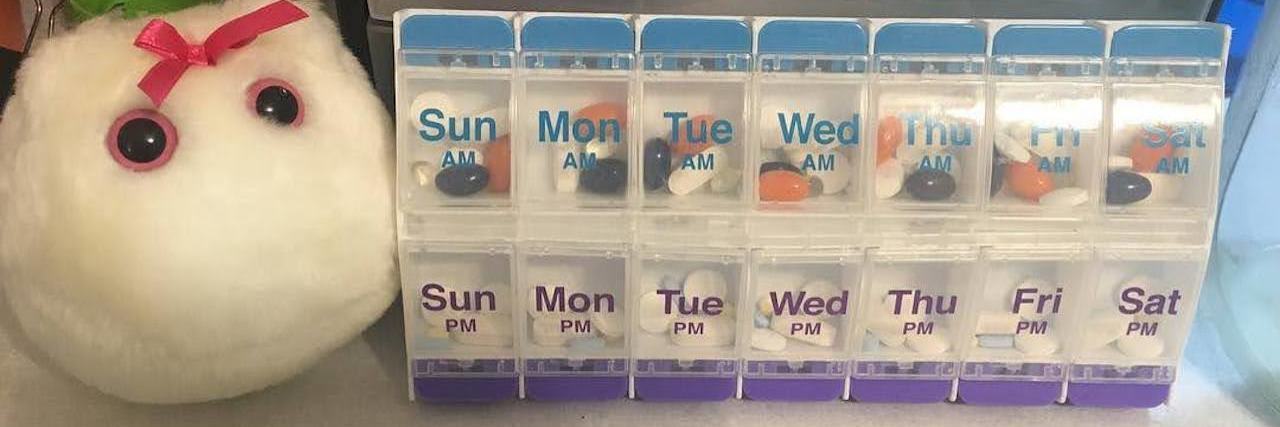We Need to Talk About the Psychological Effects of Infertility Treatment
Editor's Note
Any medical information included is based on a personal experience. For questions or concerns regarding health, please consult a doctor or medical professional.
Dear Fellow Infertile Women,
I’m writing to you from right smack-dab in the middle of a round of the “Clomid Crazies.” Having done Clomid over 10 times (maybe closer to 20) in the last two and a half years I consider myself somewhat of an expert and let me tell you, it’s a hell of a drug. I feel like I deserve a “I Survived Clomid” t-shirt at the end of every round, or maybe more accurately my husband deserves the t-shirt because I was genuinely worried it was what was going to be listed as his cause of death.
I can see the coroner report now:
COD: His wife was on Clomid.
For those of you who haven’t been dragged through hell the way I have, Clomid aka Clomiphene Citrate, is a fertility drug that according to WebMD “… works by stimulating an increase in the amount of hormones that support the growth and release of a mature egg.”
What WebMD doesn’t warn you about are the psychological and emotional side effects. For that we turn to the Advanced Fertility Center of Chicago who explain on their website:
“Psychological or emotional side effects are pretty common while taking Clomid. Approximately one fourth of women will have some negative psychological side effects with Clomid. They are often described as ‘severe mood swings’ or ‘increased irritability.’
Many women say they have ‘really bad PMS’ while taking the drug. Some women will not have these side effects at all. These side effects are usually tolerable, but some women will discontinue the medication because of this.”
Doesn’t that sound like fun?
I once heard someone describe being on Clomid as feeling like your soul and your brain are on fire. Can you imagine that? Your soul and your brain on fire. When heard that I finally had words to describe what I had been feeling.
Clomid does in fact make me feel like I’m going “crazy,” and I’m not saying that to be cute. It really and truly turns me into a different and honestly scary person. In 2016 I had been taking Clomid for months at a time with negative test after negative test. Having it in my system that long changed me. I wasn’t experiencing “increased irritability,” I was crying, screaming, throwing things and lashing out violently. There were nights where I couldn’t sleep in the same room as my husband because I couldn’t stand being around another human being. When we fought over something small or I freaked out for no reason, there was part of me in my mind that was removed from what the rest of me was saying or doing that was going, “Why am I yelling? Why am I crying? This stuff doesn’t usually bother me.”
My point is if Clomid makes you feel “crazy,” you are not alone. Personally, I wish I could preemptively lock myself up like a werewolf every time I am on it but since I can’t I try this mantra: It’s not me, it’s the medication.
Knowing how it will make me feel helps me tackle it head on. I don’t want to scream, cry, throw things, etc… the Clomid does and I don’t have to do what the Clomid wants.
I have also learned that it helps me to take a month off in between rounds of Clomid. I don’t know if there is any science to back this up, but I know it helps me to step off the Clomid roller coaster for a little bit before getting back on for another wild ride.
Please know if you are experiencing these negative side effects while on Clomid, you are not crazy and you are not alone!
Talk to your doctor about switching medications, talk to a counselor, get on an antidepressant and find an infertility support group. You don’t have to walk this infertility road alone. Your mental health matters. Staying sane matters. Your relationships matter. You matter.
Love,
An Infertile Woman Who Has Been There and Survived
Getty image via Vaselena

